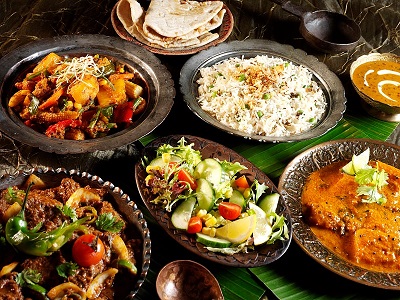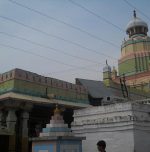Rokdeshwar Temple: A Unique Oasis of almsgiving and devotion

In the heart of a village lies the Hanuman Temple, where a remarkable tradition unfolds every Monday.
Amid the sacred ambience, around ten thousand devotees, along with villagers, gather to partake in an expansive almsgiving ceremony.
This exceptional practice, rooted in the belief that worshipping the deity at the centre of the village fulfils one’s desires, is a testament to faith’s power.
The village embraces Rokdeshwar, an incarnation of Hanuman, revered for his protective aura.
Devotees, seeking solace from their tribulations, embark on barefoot journeys spanning kilometres to reach this temple.
While Hanuman is generally worshipped on Tuesdays or Saturdays, here, Monday is the chosen day of devotion.
Every Monday, not only villagers but also devotees from diverse corners congregate to receive the temple’s benevolent food offerings.
On this day, daily routines are set aside, as individuals dedicate themselves to the service of the deity.
Patoda(B), nestled near Dharmabad in Maharashtra, becomes the sacred stage for this grand spectacle of devotion.
The temple’s origin weaves a tale of rejuvenation. Centuries ago, the temple was devoted to Shiva and Hanuman, but turmoil eroded its existence.
It was a divine vision that resurrected its significance. Lord appeared in the dreams of a villager, revealing his divine presence within the dilapidated temple.
After a period of hesitation, the village elders restored worship, leading to the birth of Rokdeshwar, the god of wealth.
Customs and rituals enrich the temple’s vibrant tapestry. Entering the temple after consuming meat or alcohol is prohibited.
Also, women refrain from worshipping in the temple. Hence, they worship the god from a distance.
A peculiar practice involves leading a horse to the River Godavari, signifying the deity’s temporary departure.
Its return symbolizes the god’s reentry into the shrine, aligning with the beliefs of the faithful.
Notably, a neem tree remains untouched in the village, symbolizing nature’s sanctity.
The temple pulsates with devotion every Monday, as devotees from all walks of life offer prayers and contributions.
The temple committee orchestrates a food donation program, which has grown over sixty years, bridging the gap between villagers and devotees.
Amidst the pious ambience, the Hanuman temple stands as a symbol of unity and devotion.
It boasts separate dining halls for men and women, emphasizing inclusivity.
With its tradition of almsgiving, heartfelt prayers, and transformative beliefs, this temple radiates a distinct charm that resonates deeply with all who tread its hallowed grounds.
Image Credit: Mohans1995, CC BY-SA 4.0, via Wikimedia Commons
Image Reference: https://commons.wikimedia.org/wiki/File:Indian-Food-wikicont.jpg










Leave a Reply